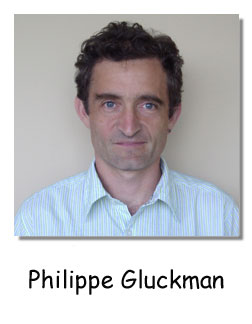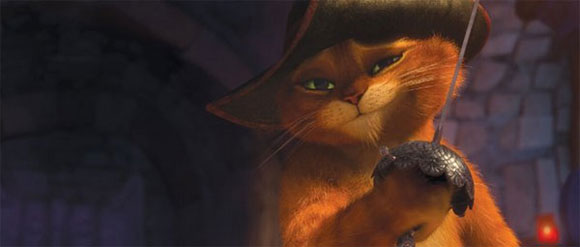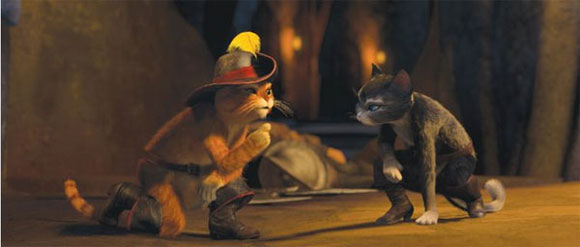 DreamWorks Animation’s feature ‘Puss in Boots’ directed by Chris Miller not only happens to be the first feature film production to which DreamWorks Dedicated Unit (Bangalore) at Technicolor India has contributed but is also one of the final nominations in the Oscars’ category of best Animated Feature Film this year.
DreamWorks Animation’s feature ‘Puss in Boots’ directed by Chris Miller not only happens to be the first feature film production to which DreamWorks Dedicated Unit (Bangalore) at Technicolor India has contributed but is also one of the final nominations in the Oscars’ category of best Animated Feature Film this year.
In this interview Philippe Gluckman, Creative Director at DreamWorks Dedicated Unit spoke to AnimationXpress.com’s Chaitra Shetty about challenges of a feature length animation production and future projects at DDU.
Excerpts…
How much work has DDU Bangalore done for Puss in Boots?
We did three sequences for Puss in Boots covering a total footage length of 464 ftg. Our work included everything from Layout onwards, all the way to final picture. The initial storyboarding, art concepts and pre-visualization were done in the US, but after that, we took over completely. This of course includes the main areas of Animation, Lighting and Effects, and all associated departments.
Since it was the first feature film production that was being done at DDU Bangalore, what were the areas of challenge?
First and foremost, the added scrutiny that such a highly visible blockbuster receives. The image is bigger, more people see it all over the world, and the expectation could not be higher.
Our previous projects also had a very high bar, but still were designed for the smaller screen. Doing a portion of the movie, our work had to fit in seamlessly with the rest, so that no one should be able to tell what was done where. From a creative standpoint, we had to deliver the same quality as the local teams, except we had to do it from the other end of the planet! Communication with the US was key.
Also, such prestigious Feature Films carry a lot of technical innovation to achieve their creative goals. Our crew had to adapt to the superior technological demands, as well as learn to work with tools that are in perpetual evolution, since they are being modified as the film progresses.
How did the work take place between the Bangalore and US studio of DreamWorks?
As much as possible, we model our production process to what is done in the US. So the work is presented to the key leadership often, and goes through the same validation steps that it would locally, except we’re across the world. This puts a lot of emphasis on our remote collaboration tools, not only video-conferencing capabilities, but also the ability to review the work together in a reliable way. So for example, our screening rooms are synchronized between India and the US, such that we are guaranteed to see the same images in full color accuracy and in 3D stereo.
In terms of technology, what did it take to pull of this film?
The cross-site nature of the work posed several pipeline challenges and required careful infrastructure planning for data sharing, reviews, rendering and production workflow tools. FX wise dust, haze and debris were added liberally to a large quantity of the shots on the show. Several shots had FX work in volumetric effects, atmosphere and secondary animations like foliage, water simulations and it took a strong team of technical directors and R&D to achieve the desired look for the show.
As described above, the ability to review work together was critical. For Puss in Boots, we built a screening room at the studio that has identical features to those in the US, and synchronized the two projections. This allows us to dependably review the work together with our counterparts at the Studio.
Also, with artists sharing the work across continents, it is paramount that the data be properly synchronized, so that an artist at one location doesn’t run the risk of mistakenly clobbering what someone else did at the other. We’ve put much emphasis on properly sharing, versioning, archiving all the work that is produced.
Puss has been explored for the first time in such detail on a feature film level. That might have been a challenge. How did the team in India deal with it?
Adapting to a new style is always a challenge on such films, but it’s also what keeps the work compelling. In the case of Puss in Boots, even though he’s been previously seen in Shrek movies, both the character and his world were significantly redesigned. We were fortunate to have the visit of the Production Designer and Visual Effects Supervisor to the studio, who gave us detailed presentations of how the styles differ. From that point on, just like in the US, we did our best to stay true to the creative charter of the film.
What was the size of the team working on Puss in Boots at DDU?
We were a team of 155 people including the support staff.
What is DDU Bangalore currently working on?
We are currently contributing to Madagascar 3, the next feature film produced by DreamWorks. Our contribution to that film will continue to grow compared to what we achieved on Puss in Boots.
This was a historical milestone for us. We opened the Unit in Bangalore with the goal of producing feature quality work. But as you may realize, this is a very tall order, so it wasn’t clear how long that would take. Getting there in only three years was a blessing for us, as we surpassed everyone’s expectations! We’re now eager to do more…

